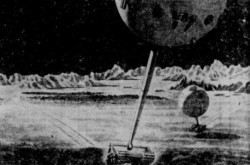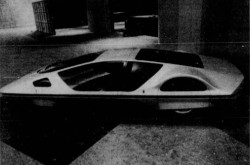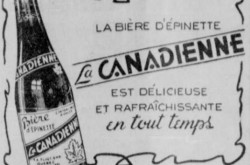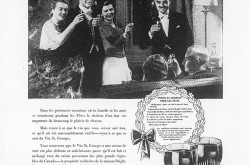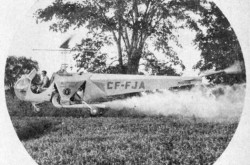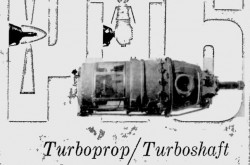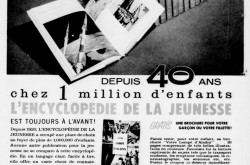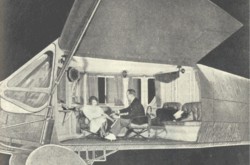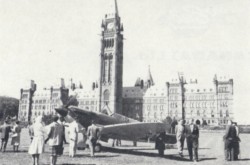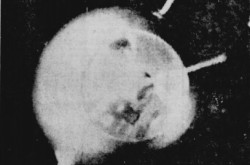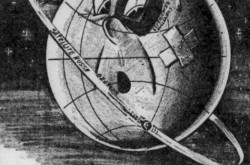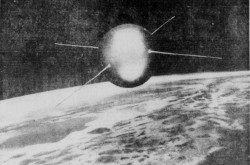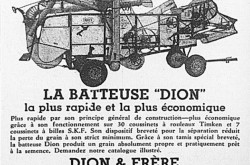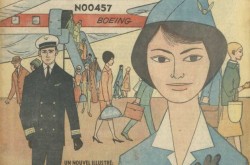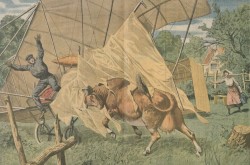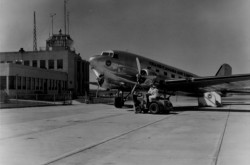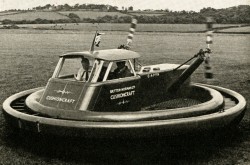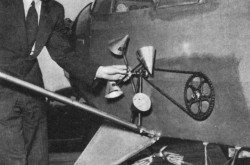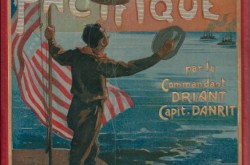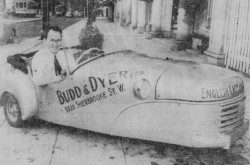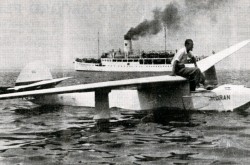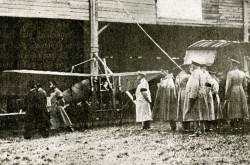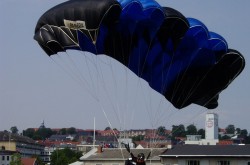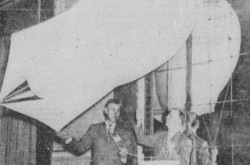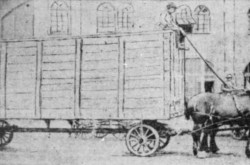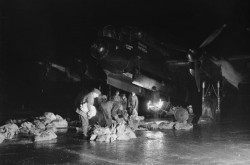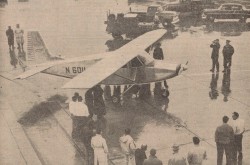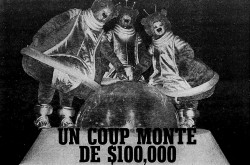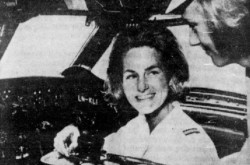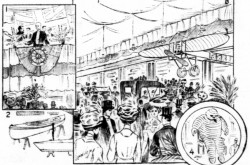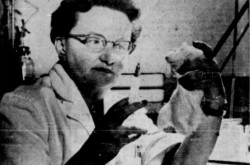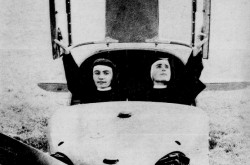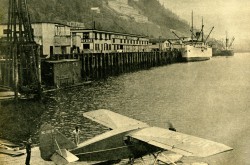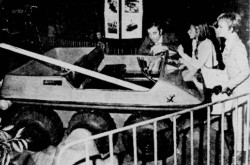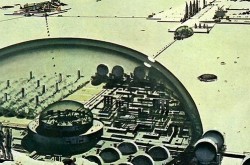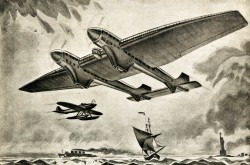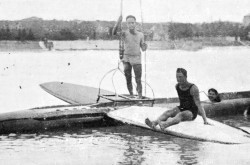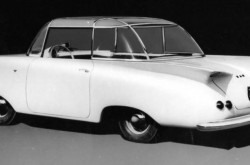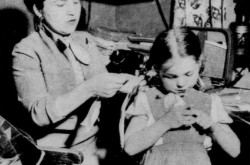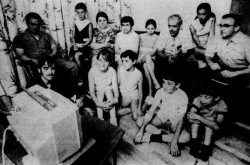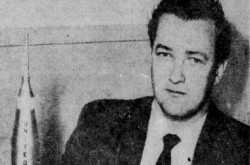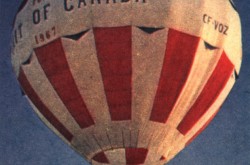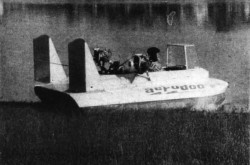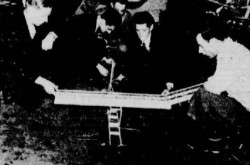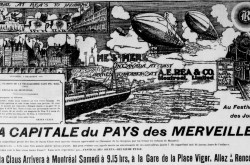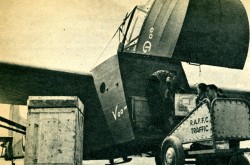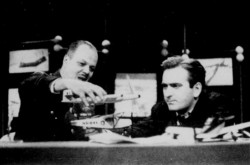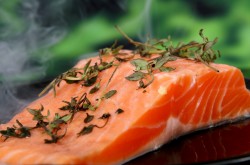From lobster bait and potato fertiliser to salt water silver: The humble sardine and Connors Brothers Limited of Black’s Harbour, New Brunswick

Do you like sea creatures, my reading friend? Do you like them platonically or do you like them once they have been baked, braised, broiled, canned, cured, dehydrated, dried, fermented, fried, grilled, marinated, microwaved, pickled, poached, roasted, salted, simmered, smoked, steamed or stewed? Unless of course you prefer sushi or have turned away from meat – a thoroughly honourable option and one which is better by far for the planet. (Hello, EG, EP and KR!)
Incidentally, the source of the illustration you saw a few moments ago, in other words Le Prix courant, was a weekly from Montréal, Québec, founded in 1887 and closed in 1957, which dealt with commerce, finance, industry, insurance and landed property.
Let us begin this issue of our blog / bulletin / thingee by stating that this text will mainly be concerned with a Clupeiforme, the sardine, leaving aside the herring, anchovy (yuk!), etc.
The idea of preserving fish to consume it later on, or to trade it in exchange for moolah or other things, is by no means a new one. Cooked fish has been put in stoneware pots sealed with a cork, with some olive oil or vinegar, for quite some time, for example.
Nicolas Appert played an important role in that story. In 1795, this French confectioner came up with the idea of putting food in glass bottles filled to the rim. Once closed with a cork, these bottles were put in a vat whose water was boiled for several hours. Adding some wax and a small metal cage reinforced the seal. The factory Appert set up around 1802-04 was the first cannery in the world.
Apparently given the choice of taking a patent and making moolah or making his process known to all and accepting a government prize, Appert chose door number 2. Indeed, it may have been with said prize that he paid for the publication, in 1810 of Le Livre de tous les ménages ou L’art de conserver pendant plusieurs années toutes les substances animales ou végétales, translated much later as The Book for All Households; or, the Art of preserving animal and vegetable substances for many years. Call me greedy if you want, but door number 1 was probably the better option.
In the United Kingdom, Appert’s book was a revelation. The world travelling crews of the many warships of the Royal Navy would be the beneficiary of his work. And yes, the United Kingdom had been at war with France since 1803. Worse still, the British canners improved the durability of their products by replacing the fragile glass bottles with tinplate containers.
Appert was destitute when he died, in June 1841, at the age of 91. Yours truly shall resist the temptation to state at this point that no good deed ever goes unpunished, or that nice people finish last.
Let us now leap across the abyss of time, my reading friend, in order to reach the year 1871. In July of the previous year, the emperor of the French, Napoléon III, born Charles Louis Napoléon Bonaparte, had declared war on Prussia – a profoundly idiotic decision given the utter superiority of the Preußische Armee over its Gallic adversary, which quickly collapsed. In January 1871, the Gouvernement de la Défense nationale, which had taken over in September 1870 and proclaimed the return of a republican form of government, was forced to sign an armistice.
The chaos of war affected to some extent the export of French canned sardines to the United States. European (Spanish? Norwegian??) canners, as keen as they might have been to fill the gap, could not quite do it. Even though the situation gradually improved, some wily Americans began to seriously consider the possibility of harvesting North American waters to supplement, or even replace, the imported delicacy.
One of these individuals was the owner of a New York City, New York, brokerage firm which had imported European sardines. Julius Wolff set up Eagle Preserved Fish Company in 1875 or 1876, on the shores of Passamaquoddy Bay, an inlet of the Bay of Fundy located between Maine and New Brunswick. He set up his firm there because sardines swam in those waters by the billion. Eagle Preserved Fish was the first of more than 400 (!) independent sardine canning factories which operated in Maine between that date and 2000, when the last survivor closed for good.
Around 1885, on the New Brunswick side of Passamaquoddy Bay, two residents of Black’s Harbour, a tiny hamlet with barely half a dozen families, began to fish in their small, open boat, the Hummingbird. Lewis and Patrick Connors came to think that they too could can sardines. They made their move in 1889. The two brothers used a structure, known as a fish weir, fishgarth, fishing weir or kiddle, to direct the passage of the sardines, or trap them. The Connors caught the fish themselves. They canned it in a wooden shed, using homemade equipment. They sold their few hundred tins in Saint John, New Brunswick, 80 or kilometres (50 miles) away, going from store to store. Realising that the Connors’ sardines were pretty nutritious, inexpensive and tasty, local merchants began to sell them. In turn, local families began to buy them.
Realising that a living could be made fishing sardines, other fishermen began to move to or near Black’s Harbour. They too built fish weirs and went after the abundant sardines. Realising that money could be made providing these newcomers with the necessities of life, the wily Lewis Connors opened a general store.
Mind you, the Connors brothers’ main gig was undoubtedly their cannery. By 1920, Connors Brothers Limited was producing a million tins a year, which was pretty darn good. Economic conditions were changing, however, and the firm was faced with many competitors.
A digression if may. As impressive as Connors Brothers’ output may have been, the truth was that it only operated during the summer, when the fish were present. This, of course, meant that its temporary and transient employees only worked during the summer. Worse still, the bulk of them lived in tents or tarpaper shacks during that period. End of digression.
After thirty or so years in the saddle, neither Lewis and Patrick Connors wanted to deal with the worry and responsibility of what they knew had to be done: Connors Brothers needed to expand. It so happened that the brothers knew someone who might be able to take over the reins. They even liked the guy, a businessman in his thirties by the name of Alexander Neil McLean. The Connors brothers asked him to take over Connors Brothers and take it to the next level. McLean agreed. Mind you, in 1923, he convinced his slightly younger brother, Allan Marcus Atkinson McLean, who owned a construction firm at the time, as well as one or more investors, to go in business with him.
As the weeks turned into months, and the months into years, Connors Brothers 2.0 grew by leaps and bounds. A temporary workforce living in tents or tarpaper shacks was no longer an option. The firm needed a permanent workforce. The McLean brothers knew very well that the only way they could attract the reliable workers they wanted was to give them decent, modern and pleasant houses. The only way the houses could remain decent, modern and pleasant over the long term was to create a decent, modern and pleasant town around them. Very much aware that they were the only people with access to the money required to get the job done, the no-nonsense McLean brothers got to work. Black’s Harbour was about to change. A lot.
Not everyone was pleased by what was being planned and done in the McLean brothers’ newfangled factory town, mind you. Might they not regiment their fiefdom, nicknamed “Little Russia” by some, like tinpot dictators? After all, it looked as if Connors Brothers’ employees did not own the houses they lived in; they rented them. While there was certainly a list of do’s and don’ts that new arrivals had to abide with, they did not seem to mind too much, and…
I recognise a question from the aether. Speak (type?) now, my reading friend, or forever hold your peace. A permanent workforce living in decent, modern and pleasant houses is very nice, but the fish were only present during the summer months, you say? A valid point.
One of the aspects of the winter employment creation plan launched by Connors Brothers involved the acquisition of tin-making machinery for the fish and box-making machinery for the tins.
Another aspect of the plan involved the hiring of Dr. J. P. Berry, a research chemist, and the creation of a laboratory / research centre. You see, while there were no sardines near Passamaquoddy Bay during the winter months, there were a lot of other sea creatures there, namely clams, cod and haddock. Berry and his small team soon developed formulas for canning said seafood, thus creating new lines of products like fish cakes, finnan haddies, clams, clam chowder, clam bouillon, and chicken haddies.
A clarification if I may. Chicken haddie does not contain a single molecule of Gallus gallus domesticus. It is in fact a boneless mixture of white fish, and…
Is a finnan a type of fish with really big fins, you ask, my facetious reading friend? Well, no, there is no such fish as a finnan. The terms finny haddock / finnan haddock / finnan haddie / finnan / findrum speldings refer to a type of cold-smoked haddock found in Scotland, but back to Berry and his progeny.
The production of tins and boxes, allied with the canning of the new lines of products developed by Berry and his team went a long way toward solving Connors Brothers’ winter underemployment problem.
Then the Great Depression hit.
As the world seemed about to crumble, Connors Brothers put to good use the substantial reserves of money it had. The McLean brothers also indicated to their employees that they were in this muck-up together, and that they would get out of it together. That, or they would sink together.
Connors Brothers enlarged its cannery and packed its warehouses with unsold tins of fish until their walls bulged outward. It built additional houses, using wood from its lands cut in its sawmill, until it proved difficult to put families inside them. Would you believe Connors Brothers set up its own shipyard, where it built boats presumably used by local fishermen?
By the time Canada’s economy picked up, which may well have been when the Second World War was about to begin, Connors Brothers had gone through most of its financial reserves. It had been a close call. Still, the firm could truthfully boast, as the sign on the cannery stated, that it ran “The Largest Sardine Cannery in the British Empire.” More importantly, it looks as if few if any family which included one or more employees of Connors Brothers missed a meal during one of the darkest periods in Canada’s history.
As you may well imagine, Connors Brothers was kept busy throughout the Second World War. Alexander Neal McLean spent a good deal of the war in Ottawa, though, as the assistant administrator for fish and fish products. And no, there was no head administrator for that unit of the Wartime Prices and Trade Board.
The Canadian Prime Minister, William Lyon Mackenzie “Rex” King, was so pleased by the work accomplished by McLean, like his brother a long-time friend of the governing party, that he appointed him to the Senate of Canada in April 1945. And yes, King was mentioned several / many times in our blog / bulletin / thingee since April 2018.
It is worth noting that the Second World War was directly responsible for the addition of another country to Connors Brothers’ long list of customers. That country was the United Kingdom. You see, various European countries surrounding the Mediterranean Sea which exported canned sardines had managed to obtain a ruling in that country according to which they alone could label their sardines as sardines. A ruling which prevented Connors Brother from selling its wares in the United Kingdom. Understandably enough, the governments of Australia, New Zealand and South Africa soon followed suit, which prevented Connors Brother from selling its wares there as well.
Understandably upset by the British ruling, Connors Brothers argued that the European sardine and the Canadian sardine were pretty much the same fish. If Canadian sardines could not be called sardines on British soil because they did not originate from the basin of the Mediterranean Sea, why was the British government allowing British china to be called British china? After all, china did not originate from the United Kingdom. It originated from, well, China.
The governments of Australia, New Zealand and South Africa saw the logic in Connors Brothers’ argument and allowed the Canadian firm to sell its sardines on their soil. For some reason or other, the British government refused to change its tune.
Now, at the rick of sounding impertinent, yours truly finds it interesting that the British government had been and was still keen to maximise trade within the British, err, Commonwealth. Apologies, but the word Empire just sticks in my craw. After all, the British government and those of the Dominions had enacted a system of mutual tariff reduction known as Imperial Preference as a result of the British Empire Economic Conference held in Ottawa, Ontario, in July and August 1932.
Now, given such a commitment, my naïve reading friend, you might ask why the British government would choose European sardines over Canadian ones. Yours truly cannot quite accept its “a ruling was made and we stick to it.” Nay. I have a feeling the European sardines were cheaper. If true, and here comes the impertinent part of this statement, imperial preference was a great thing as long as the United Kingdom could not find cheaper products outside the, err, Commonwealth. Even so, the British government seemed to expect each and every Dominion to sacrifice the lives of its young men if said government dug itself into a hole it could not climb out of.
This was precisely what happened in September 1922 when the pro-Greek Prime Minister of the United Kingdom, David Lloyd George, wished to declare war on the Turkish provisional government, which wanted to kick out of its territory the British, French, Italian and Greek troops located therein, a Lloyd Georgian wish expressed without consulting the Dominions and despite the opposition of France, Italy and other Allied countries, not to mention the opposition of British public opinion – and of the British Army, including that of the British commanding officer of the Allied forces which occupied the capital of the then defunct Ottoman empire, Constantinople, today’s Istanbul.
Offended by an imperious telegram sent on 15 September by the warmongering British Secretary of State for War, Winston Leonard Spencer “Winnie” Churchill, asking for the dispatch of Canadian troops as soon as possible, the aforementioned King replied that the decision to go to war, or not, was a matter of Canadian jurisdiction. Since his party and the party which supported his minority government were opposed to any war against the Turks, King was for all intents and purposes refusing to support the United Kingdom – a Canadian first which seriously activated the gums of the Anglo Canadian imperialists and of the official opposition, then led by Arthur Meighen, which / who did not seem to realise the importance of supporting the national government of Canada in a time of crisis.
You will of course remember that Churchill was mentioned many times in our blog / bulletin / thingee since May 2019.
Canada’s informal “no” during that so-called Chanak / Çanakkale crisis, named after a Turkish port city on the Asiatic side of the Dardanelles Strait, was supported by an eloquent lack of response on the part of the governments of Australia and South Africa to the British telegrams they had received. Only Newfoundland and New Zealand agreed to offer their youth to satisfy Lloyd George’s insane demand.
A somewhat surprised and very isolated British government soon entered into negotiations with the Turkish provisional government to settle the issue. The big losers in what followed were the Greeks civilians, and the Greek soldiers, which found themselves alone against the Turks – a most unwelcome situation given the fighting spirit of the average Turkish soldier.
The Chanak crisis, combined with brazen efforts to obtain money in exchange for honours / titles and the creation of an Irish free state, a liberating move which had outraged powerful elements within the coalition government led by Lloyd George, led to the resignation of the Welsh wizard, as he was often called, in October 1922.
If I may be permitted to paraphrase the title of an excellent British documentary television series, The Day the Universe Changed: A Personal View by James Burke (March-May 1985), 15 September 1922 was a day the universe changed.
On a tragic note, over the following weeks and months, the Turkish provisional government had free rein to defeat and kick out of its territory the Greek troops located therein, and obtain the departure of the British, French and Italian troops as well, which led to a massive expulsion of population on both sides. In 1923, at least 1.6 million people, including about 1.2 million Greeks, had to leave the regions where their ancestors had lived, in many cases, for more than 2 500 years.
About 260 000 Greek civilians were killed by the Turks before they could escape. These deaths concluded a period of ethnic cleansing and genocide between 1915 and 1923 during which 2 million or more Armenian, Assyrian and Greek civilians perished at the hands of the Ottoman empire and Turkish provisional government.
If yours truly may be permitted a comment at this point, mankind is far from kind. A return to the topic of the day would be a good idea.
The British government stuck to its guns, sardine wise, until September 1939 when National Socialist Germany opened fire on Poland, an ally for which France and the United Kingdom did diddly squat throughout that month of September. Well, actually, one presumes that the government stuck to its guns until the bulk of the British Army ran away from the battlefield, in the middle of a battle, in May 1940, abandoning its French ally and all of its heavy weapons in the process, and skedaddled across the Channel.
A sentence found on the website of the National Army Museum brought a world-weary smile to my furrowed face: “Following France’s defeat and the Army’s expulsion [sic] from Western Europe, the British found themselves without allies and threatened with invasion.” I wonder if the good folks at that British institution think that Australia, Canada, India, New Zealand, South Africa and the rest of the Commonwealth were on National Socialist Germany’s side in 1940. Just askin’.
In any event, now that it could not get cheap sardines from continental Europe, the British government came knocking on Connors Brothers’ door, all but begging the Canadian firm to ship its product to the United Kingdom.
Now, I ask you, my reading friend, what do you think happened after the end of the Second World War? Yep, you guessed it. The government of the land from which the ancestors of the McLean brothers had come from slammed the door in their faces. Actually, it stated that it would welcome Connors Brothers’s sardines if the labels on the tins said herring, or little fish packed in oil. The McLean brothers very, very, very politely told the British government to s*d off.
Would it be indelicate at this point to point out that more than 43 000 Canadians in uniform had died during the Second World War?
Yours truly cannot say when exactly the British government pulled… Too offensive a statement, you say (type?), my reading friend? You are probably right. In any event, exports to the United Kingdom began no later than 1961.
On a more positive note, at some point in the second half of the 1940s, after a further expansion of its cannery followed by some research to confirm its suspicion, Connors Brothers took down its “The Largest Sardine Cannery in the British Empire” sign and replaced it with one which said “The Largest Sardine Packers in the World.”
By 1951, Black’s Harbour was the clean, modern, pleasant and paternalistic home of the 2 000 or so Homo sapiens who lived there in 300 or so houses, located on paved streets, with running water, electricity and a garden. And no municipal taxes to worry about. And yes, most families had an automobile.
A mackerel, haddock or flounder, picked up fresh up at Connors Brothers’ wharf, of course, could be taken home free of charge for use as any and all families’ main dinner course, provided they included someone who worked for Connors Brothers of course.
Would you believe that the typical family of a typical employee living in a 6-room house paid $14 a month in rent, slightly more than $ 145 in 2022 currency. Wow…
Given that pretty much everything our typical family needed could be rented or bought for less than almost anywhere else in North America, it was hardly surprising that many probusiness commentators of the time referred to Black’s Harbour as some sort of worker paradise.
Commentators who were not probusiness might not have agreed. After all, Connors Brothers owned and operated Black’s Harbour’s bowling alley, dairy, fishing fleet, garage, hospital, hotel, newspaper, woodworking plant, restaurant, sawmill, shipyard, department store, grocery store, and movie theatre. And yes, the police officers, firefighters and garbage collectors of Black’s Harbour worked for Connors Brothers. The only people the firm did not employ were the teachers in the school, the clergymen in the three churches and the staff in the bank.
Even there, Connors Brothers provided substantial financial support for the school and churches.
How about a municipal council with alderpeople and a mayor, you ask? Are you kidding, my somewhat naïve reading friend? That said, a specific issue could be raised at a town meeting. The residents won their case in some (many?) cases.
Still, anyone who ran afoul of Connors Brothers, or the McLean brothers, for one reason or another, might have been “outta dere” before he could say “But, Sir, let me…” That anyone may well have included the teachers, clergymen and bank staff. And no, yours truly very much doubts that the cannery’s employees were unionised.
The only rich people connected with Connors Brothers were the McLean brothers. The elder and company president lived in Saint John while his younger sibling, the firm’s general manager, lived in Black’s Harbour.
The source of their wealth was, of course, the fish – in 1950, close to 500 000 000 sardines packed like, err, sardines, sorry, I could not resist, in more than 70 million tins that Connors Brothers shipped to every corner of the sphere we call home. And if you can find a corner on a sphere, my reading friend, you are smarter than I.
The McLean brothers gradually retired but left the firm in the hands of family members. Alexander Neil McLean and Allan Marcus Atkinson McLean died in March 1967 and April 1969, at the age of 81 and 77.
George Weston Limited of Toronto, Ontario, took over Connors Brothers in the fall of 1967. A few years before, this Canadian food processing and distribution giant had taken over another Canadian canning giant, British Columbia Packers Limited of Vancouver, British Columbia. The acquisition of Connors Brothers turned George Weston into the largest player within the Canadian canning industry.
Over the following years and decades, pretty much all the small canneries in New Brunswick and Maine were forced to close their doors, unable as they were to compete with giants like Connors Brothers. Indeed, the latter bought the last pair of Maine sardine canneries in 2000. They were soon shut down, a move which angered many people in the area.
In 2004, Connors Brothers Income Fund, a new corporate name adopted some years before, combined with an American tuna canner, Bumble Bee Holdings Limited Liability Company, not to mention Clover Leaf Seafoods Company of Markham, Ontario, thus becoming the largest branded seafood firm (Beech Cliff, Bumble Bee, Brunswick, Clover Leaf, Snows) in North America.
In the fall of 2008, Connors Brothers Income Fund sold itself to an American middle market private equity firm, Centre Partners Management Limited Liability Company.
In November 2019, Bumble Bee Foods Limited Liability Company filed for bankruptcy. You see, back in 2017, this seafood giant had been found guilty in a conspiracy involving a pair of American seafood giants, Starkist Company, a subsidiary of South Korean fishing giant Dong-Wonsan-Eob, in other words Dongwon Industries Limited, and Chicken of the Sea Incorporated, a subsidiary of Thai seafood giant Bris̄ʹạth Thịy Yū Neī̀yn Krúp Cảkạd (Mh̄āchn), in other words Thai Union Group Public Limited Company. The terrible trio had conspired to fix and raise prices of their products in the United States.
Was Connors Brothers Clover Leaf Seafoods Company, as it was called by then, of Blacks Harbour, New Brunswick, Blacks without the apostrophe you will note, aware of what its American affiliate was up to, you ask, my skating on thin ice reading friend? You will forgive me if I choose not to touch that query with a 3.048 metre (10 feet) pole. Hello, Mr. Defamation Lawyer, nothing to see here, nothing to see! (Hello, EP!)
In any event, Connors Brothers Clover Leaf Seafoods seemingly had to reorganise itself under Canadian insolvency law.
The firm was still in business as of 2022. Its website seemed to indicate that it sold Brunswick, Bumble Bee and Clover Leaf brand products, which was / is a tad odd given that Bumble Bee Foods was also doing business in 2022, as was Chicken of the Sea. So, was Bumble Bee Foods controlled by Connors Brothers Clover Leaf Seafoods? A good question. Feel free to ask, my reading friend. But do not ask me.
As of 2022, the cannery operated at Blacks Harbour by Connors Brothers Clover Leaf Seafoods was apparently the last factory of its type in the Bay of Fundy region.
Enjoying the Ingenium Channel? Help us improve your experience with a short survey!


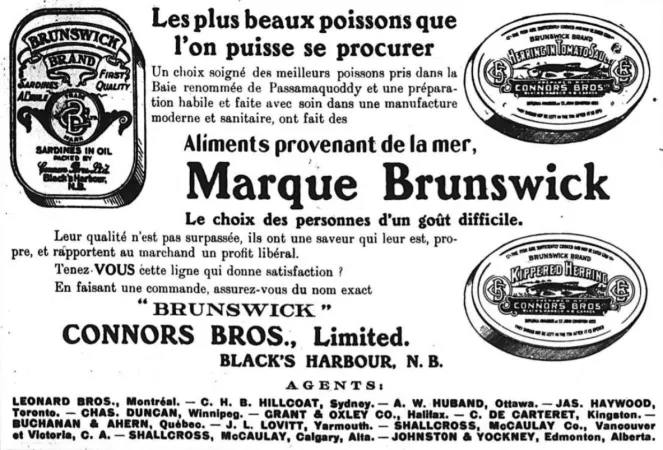












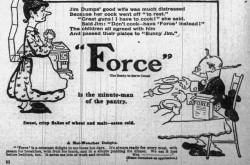
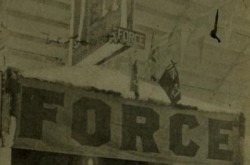
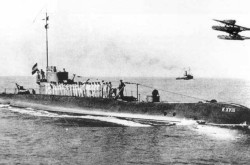
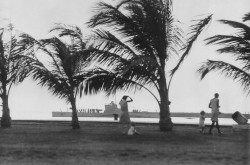
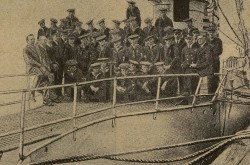
![A block of photographs showing some of the people involved in the bombing of beluga whales in the estuary and gulf of the St. Lawrence River. Anon., “La chasse aux marsouins [sic]. » Le Devoir, 15 August 1929, 6.](/sites/default/files/styles/thumbnail_7/public/2024-09/Le%20Devoir%2015%20aout%201929%20page%206.jpg?h=584f1d27&itok=TppdLItg)
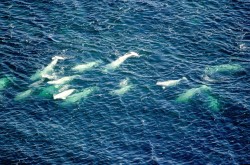
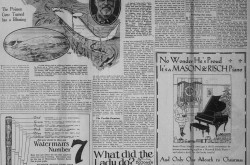
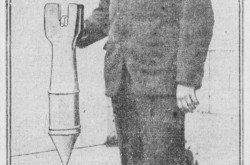

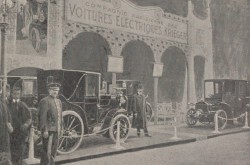
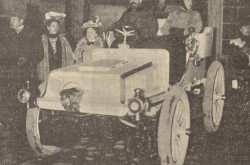


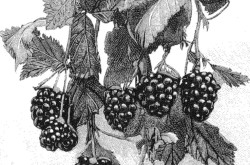
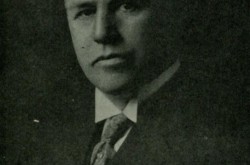
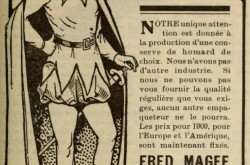
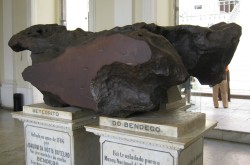
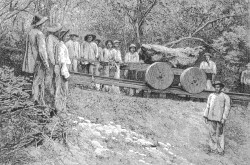


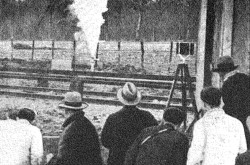



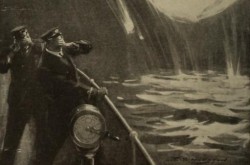
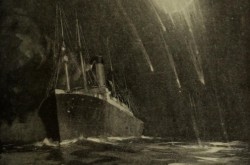
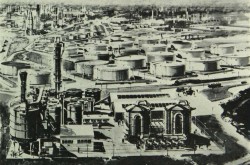
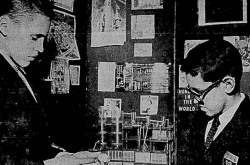



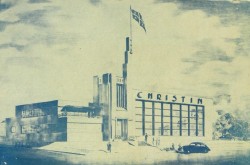
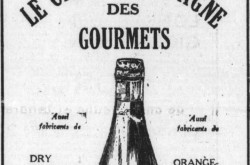
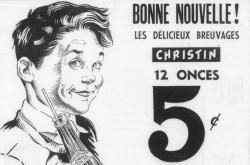
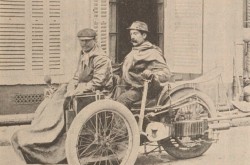
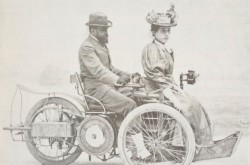
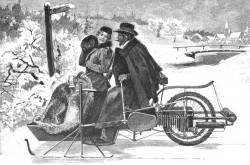
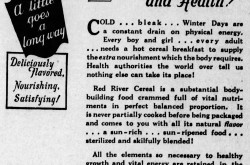

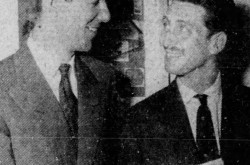

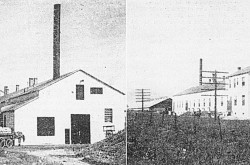
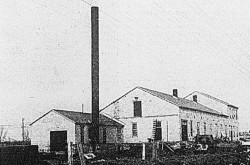
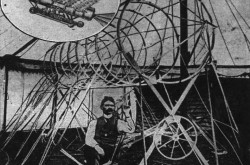
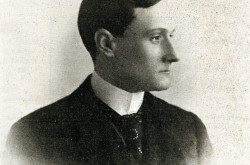
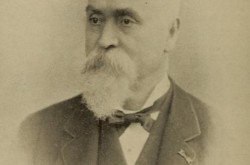
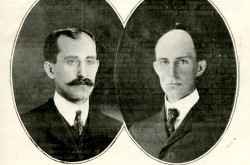
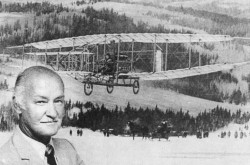
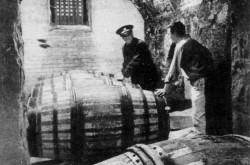
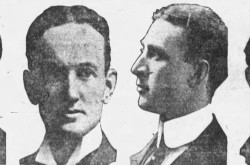
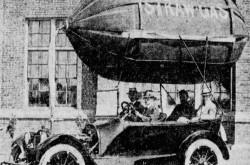
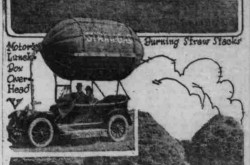
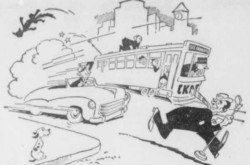
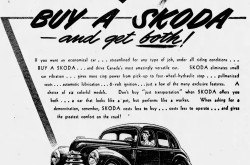
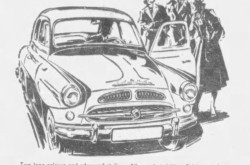
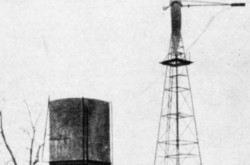
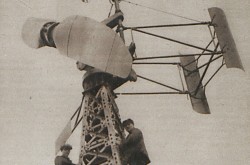
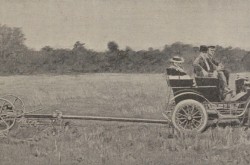
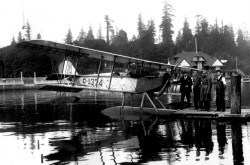
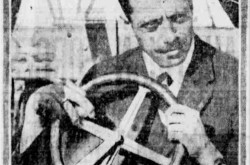


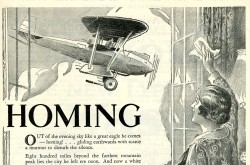



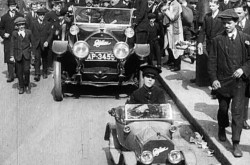
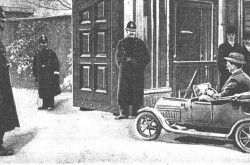

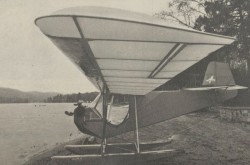
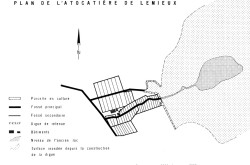
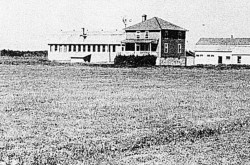


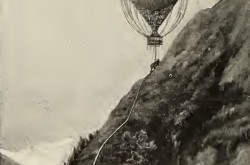
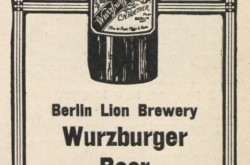

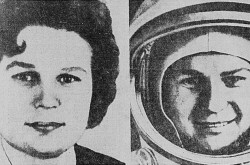

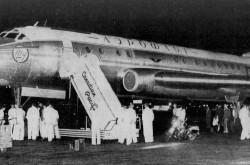
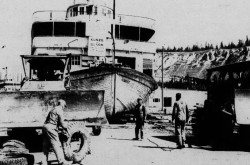
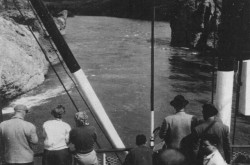
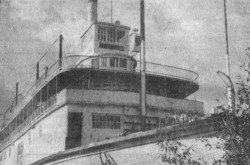
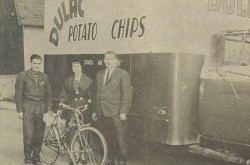

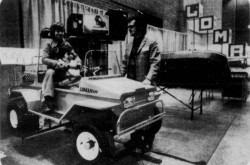
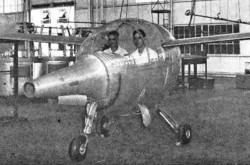
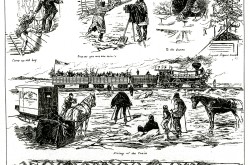
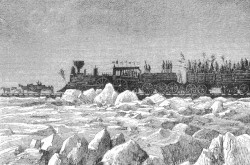

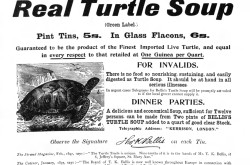
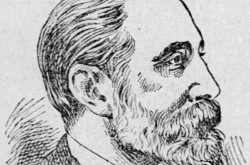

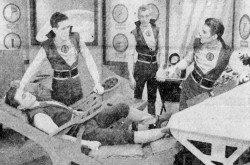
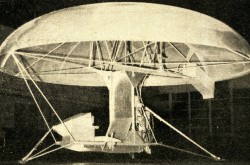
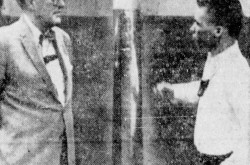
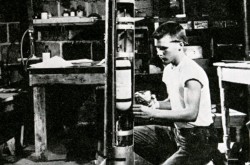

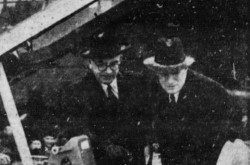
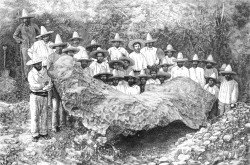
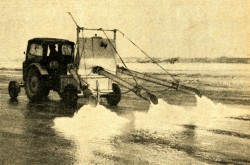
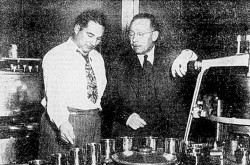
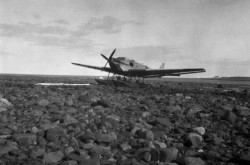
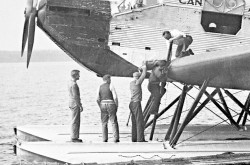
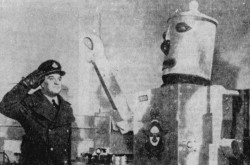
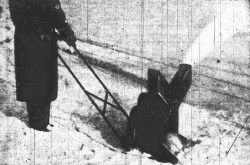
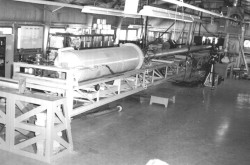


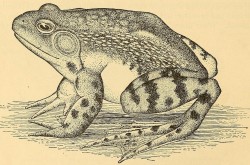
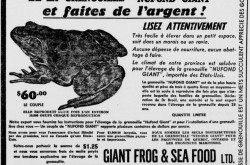
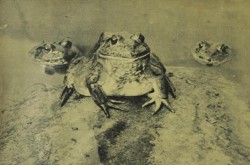
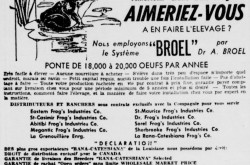
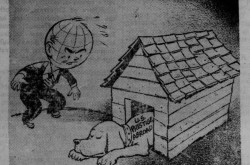
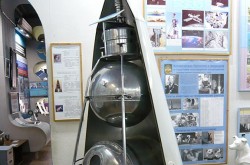

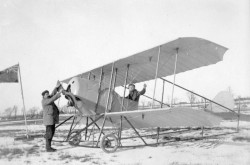
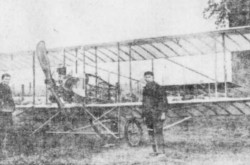
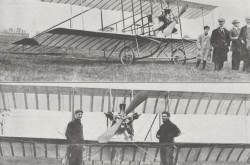
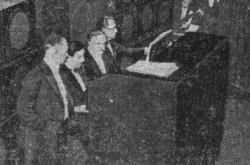
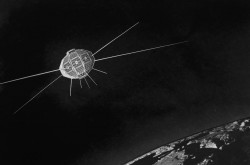
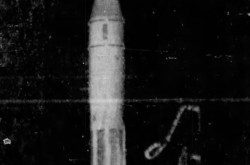

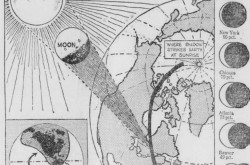
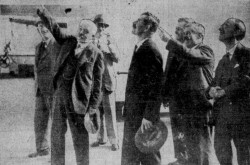
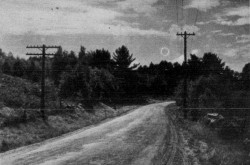



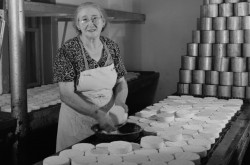
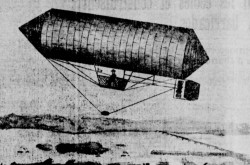
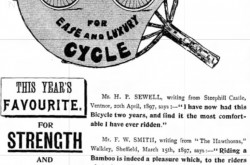

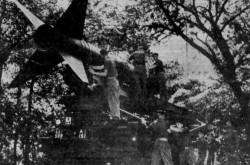
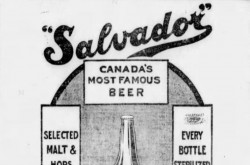


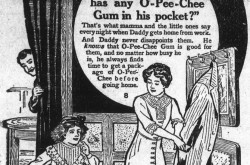
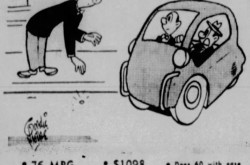

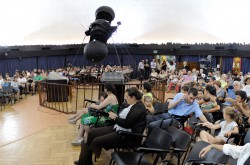
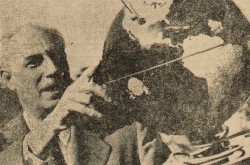
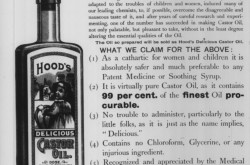
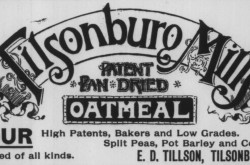
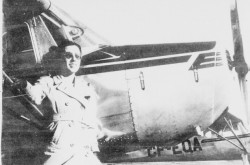
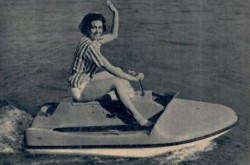






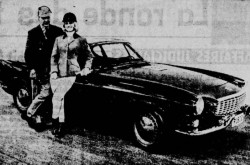
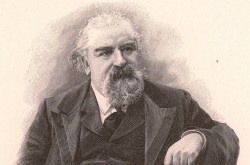
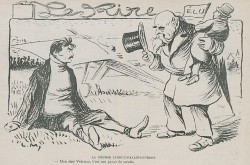



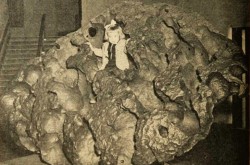

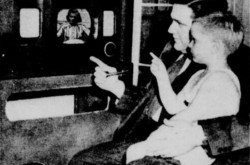
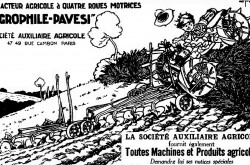

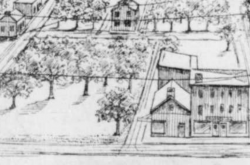

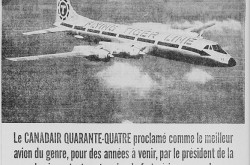

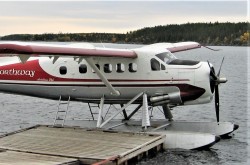
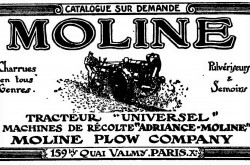

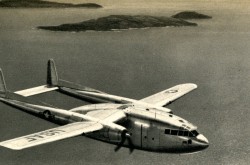
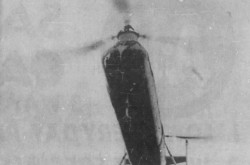
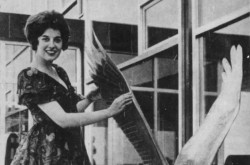
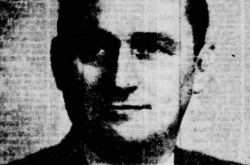
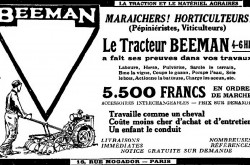
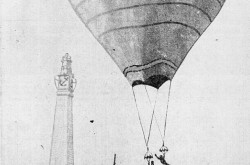
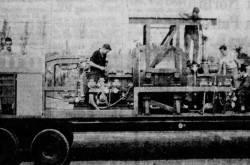

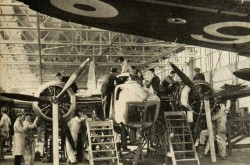


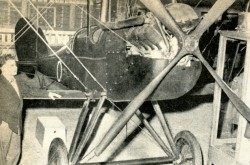
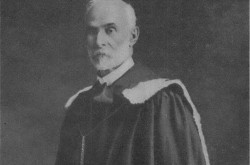

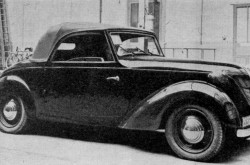
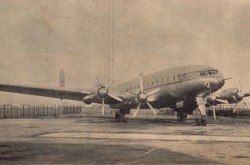

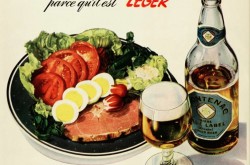

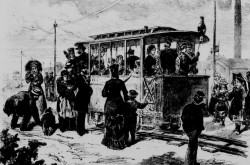
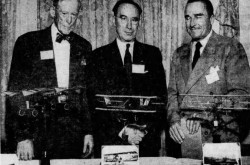

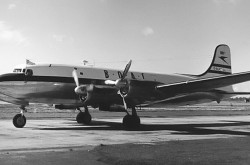
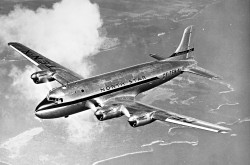
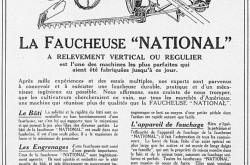
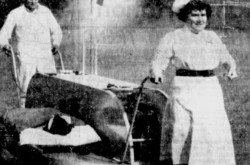
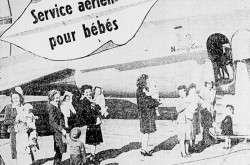
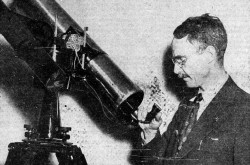
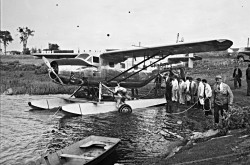

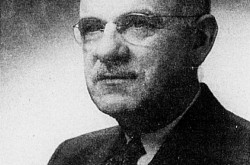
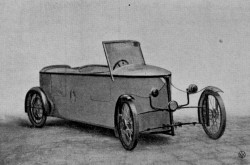
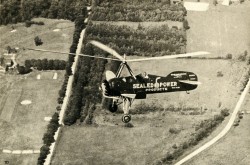
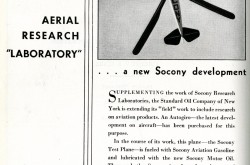
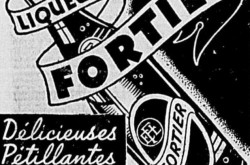
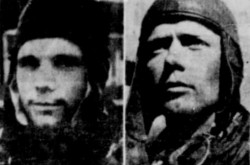

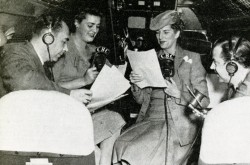
![Peter Müller at the controls [sic] of the Pedroplan, Berlin, Germany, March 1931. Anon., “Cologne contre Marseille – Le mystère du ‘Pédroplan.’ [sic]” Les Ailes, 2 April 1931, 14.](/sites/default/files/styles/thumbnail_7/public/2021-04/Les%20Ailes%202%20avril%201931%20version%20big.jpg?h=eafd0ed4&itok=WnBZ5gMf)
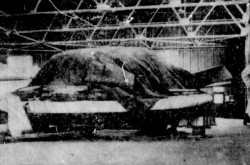

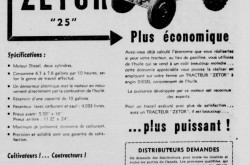
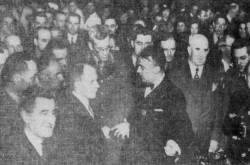





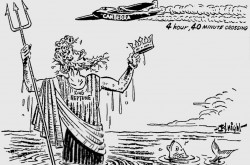

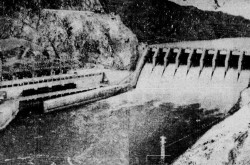
![One of the first de Havilland Canada Chipmunk imported to the United Kingdom. Anon., “De Havilland [Canada] DHC-1 ‘Chipmunk.’” Aviation Magazine, 1 January 1951, cover.](/sites/default/files/styles/thumbnail_7/public/2021-01/Aviation%20magazine%201er%20janvier%201951%20version%202.jpg?h=2f876e0f&itok=DM4JHe5C)

